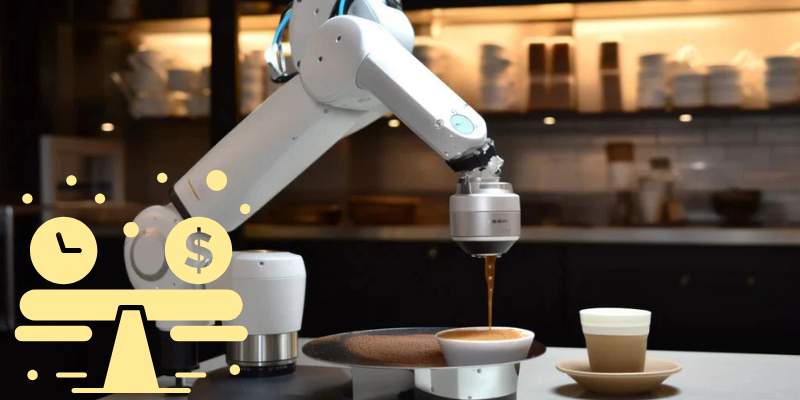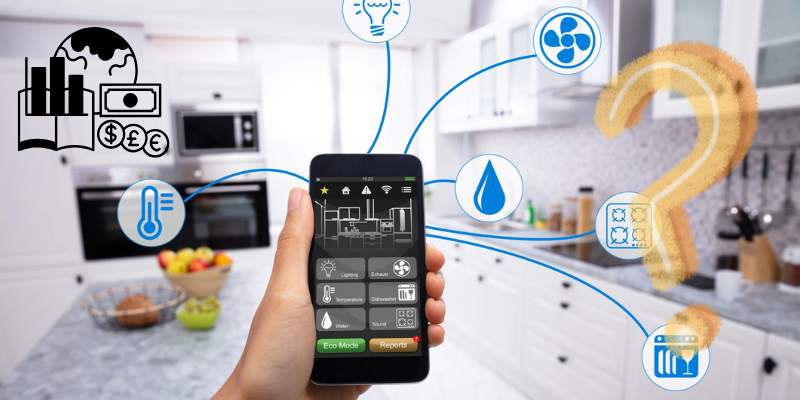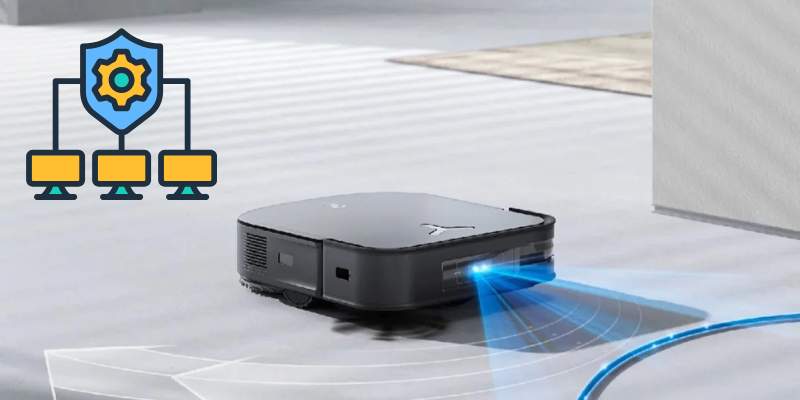Coffee is sacred. For many of us, that first cup in the morning isn’t just a beverage—it’s survival. The ritual of grinding beans, hearing the water gurgle, and breathing in that first waft of steam is as emotional as it is practical.
So when the industry started pushing AI-powered coffee machines, I couldn’t help but pause. Do we honestly need artificial intelligence to handle what has, for centuries, been a simple, human ritual?
Or is this one of those moments where technology promises to make life easier, only to add unnecessary complexity?
It’s a fair question. Because on one hand, I love innovation. On the other, I wonder if we’re losing touch with the simple joy of brewing coffee ourselves.
This isn’t just about caffeine—it’s about culture, convenience, and how far we’re willing to let machines manage daily life in the broader context of AI in home.
What Is an AI-Powered Coffee Machine?
Let’s start by defining what we’re talking about.
An AI-powered coffee machine isn’t just a fancy brewer with a touchscreen. It’s equipped with sensors, machine learning algorithms, and internet connectivity.
These machines claim they can learn your preferences over time, adapt recipes based on your habits, and even recommend drinks you didn’t know you wanted.
Some of the features include:
- Personalized brewing: Recognizes your taste for stronger or milder coffee.
- Scheduling and remote control: You can start brewing from an app while still in bed.
- Integration: Syncs with smart home ecosystems, so coffee’s ready when your alarm goes off.
- Maintenance alerts: AI tracks when descaling or cleaning is needed.
- Learning over time: The machine “remembers” you and improves its output.
In theory, this sounds like bliss: a barista that lives in your kitchen. In practice, though, does the promise match reality?
The Emotional Weight of Coffee
Coffee isn’t just about the drink. It’s about the act.
- Grinding beans by hand can feel grounding.
- Brewing methods, from pour-over to French press, connect us to tradition.
- Sharing a pot with friends can be more about conversation than caffeine.
When a machine takes over, something shifts. Sure, you gain convenience. But you also lose part of that ritualistic relationship with coffee.
I can’t help but think of my grandmother’s stovetop percolator. It wasn’t perfect, but it was part of her rhythm. Would she have trusted a machine that claimed to “know” her taste better than she did herself?
Market Growth: Coffee Meets AI
The numbers show that AI-driven coffee appliances aren’t a passing fad.
- The global coffee machine market was valued at $5.88 billion in 2021 and is projected to grow to $8.2 billion by 2027 (Statista).
- Smart appliances in general are booming, with the know appliances industry expected to surpass $108 billion globally by 2030.
- Early adopters are willing to pay extra: premium AI coffee machines range from $1,200 to $3,500, compared to traditional models that cost a few hundred dollars.
That’s not pocket change. And it begs the question: are we buying actual value, or just falling for high-tech hype?
The Convenience Factor
Here’s where AI coffee machines shine.
- No guesswork: Strong brew Monday morning? Mild latte on Friday? The machine adapts.
- Time-saving: While you shower, it brews exactly what you want.
- Consistency: Every cup tastes the same, removing human error.
- Maintenance reminders: No more ruined mornings because the machine broke down from neglect.
If you’re the type of person who craves efficiency in the morning rush, this is seductive. It feels like technology stepping in at just the right moment.
But convenience always comes with trade-offs. And coffee—because it’s personal and cultural—makes those trade-offs feel sharper.
The Overkill Argument
Now let’s flip the coin.
Do we really need AI to do what a French press, moka pot, or even a $200 drip machine can already handle? For centuries, people brewed delicious coffee with nothing more than hot water and beans.
Sometimes, I think these devices are designed less for necessity and more for status. They turn a simple ritual into a showcase of wealth and modernity. “Look at my kitchen,” the subtext goes, “I have an AI coffee machine that learns my mood swings.”
That’s where the critique of overkill comes in. Just because kitchen AI and the gadget industry can add sensors and algorithms to a device doesn’t always mean they should.
The Broader Smart Home Context
Coffee machines aren’t alone in this journey. They’re part of a bigger ecosystem of connected appliances: refrigerators that track expiration dates, ovens that recognize food, dishwashers that run on energy-efficient cycles.
Some of this feels genuinely useful. Some feels gimmicky. And that’s the balance smart homes are still struggling to find.
It’s not just about whether these gadgets work. It’s about whether they improve the human experience, or simply add complexity where it wasn’t needed.
Taste: Can Machines Really Brew Better Coffee?
Here’s the heart of the debate: does AI actually make better coffee?
From my experience and from reviews I’ve read, the answer is… sometimes.
AI excels at consistency. If you want the same espresso shot every day, it delivers. But coffee is more than chemistry. A slight variation in grind, a bit of extra bloom in a pour-over—those imperfections can make a cup memorable.
And ironically, some coffee lovers argue that AI removes the soul of brewing. It becomes too clinical. Too exact. Like eating bread baked by robots instead of by a baker who feels the dough.
Environmental Impact
AI-powered machines promise efficiency—less wasted water, optimized energy use. That’s good.
But they also come with hidden costs:
- Higher energy consumption due to always-on connectivity.
- More electronic waste if the device becomes obsolete quickly.
- Complicated parts that aren’t easily repairable.
It’s worth asking whether we’re actually helping the planet, or just creating more landfill fodder disguised as innovation.
Privacy and Data Concerns
It might sound absurd at first—why would a coffee machine need my data?
But think about it. These machines log usage patterns: what time you brew, how much, what recipes you favor. Combined with other smart devices, that builds a detailed picture of your lifestyle.
Side devices? Absolutely. Because when your coffee machine talks to your fridge, thermostat, and even your fitness app, companies collect insights about your daily rhythms. And those insights are valuable.
So yes, the risk of data exploitation is real, even in something as simple as making coffee.
The Human Factor: Ritual vs. Automation
This is where it gets personal for me.
On some mornings, I just want a fast, reliable cup. And I get the appeal of automation. But on weekends, I crave the ritual: grinding beans by hand, timing the pour, savoring the smell. It’s meditation disguised as caffeine delivery.
An AI coffee machine can’t replicate that. It’s efficient, but it lacks intimacy. And I think we lose something important when every ritual is replaced by convenience.
Comparing Costs: Old vs. New
To put it bluntly:
- French press: $30–$50, lasts years, no electricity.
- Basic drip coffee maker: $100–$200, reliable, easy to maintain.
- AI coffee machine: $1,200–$3,500, needs updates, expensive repairs.
Sure, the AI machine does more. But is the leap in cost proportional to the leap in value? That depends on how much you prize convenience over ritual.
Where This Technology Is Heading
Looking ahead, AI coffee machines will likely get even “smarter.” Imagine:
- Machines that detect your stress level (via wearable integration) and adjust caffeine accordingly.
- Appliances that pair your coffee with recommended breakfast recipes.
- Integration with smart mirrors that suggest hydration if you’ve had too much caffeine.
Sounds futuristic, right? Maybe even useful. But also, at some point, intrusive. Do I want my coffee machine telling me I’ve had enough espresso for the week? Probably not.
Conclusion: Convenience vs. Overkill
So, do we really need AI-powered coffee machines?
- If you’re someone who thrives on efficiency, consistency, and seamless smart home integration, then yes—these machines might feel like a dream.
- If you value tradition, ritual, and simplicity, then no—they’re probably overkill.
For me, the answer changes depending on the day. During a hectic weekday, I’d happily let an AI machine handle my coffee so I can focus on life. But on a quiet Sunday morning, give me a kettle, some beans, and the slow, imperfect beauty of brewing by hand.
Because coffee isn’t just about caffeine. It’s about connection—connection to ourselves, to others, and to the rituals that make us human. And no matter how advanced the air air improve gadgets get, I don’t think machines can—or should—replace that.


